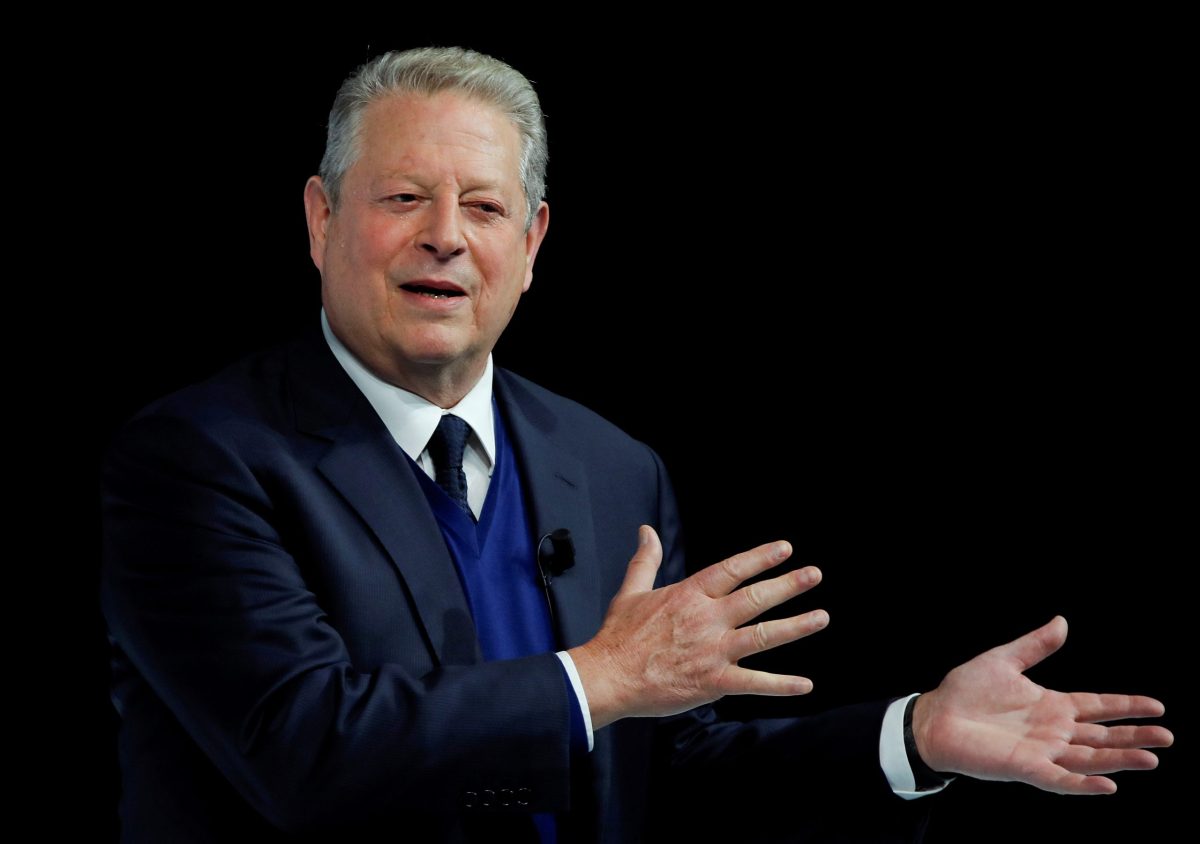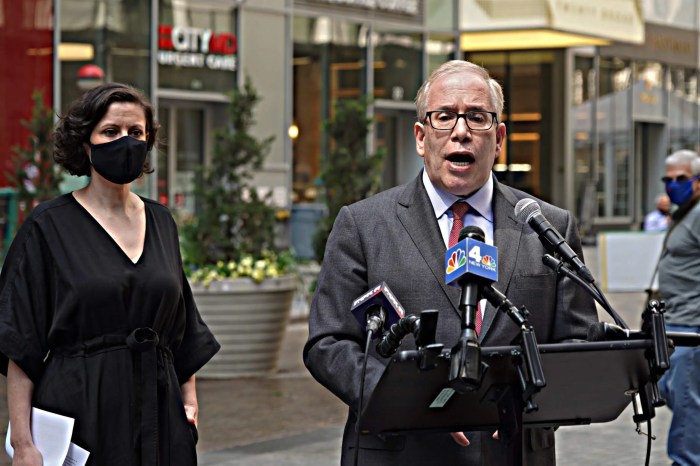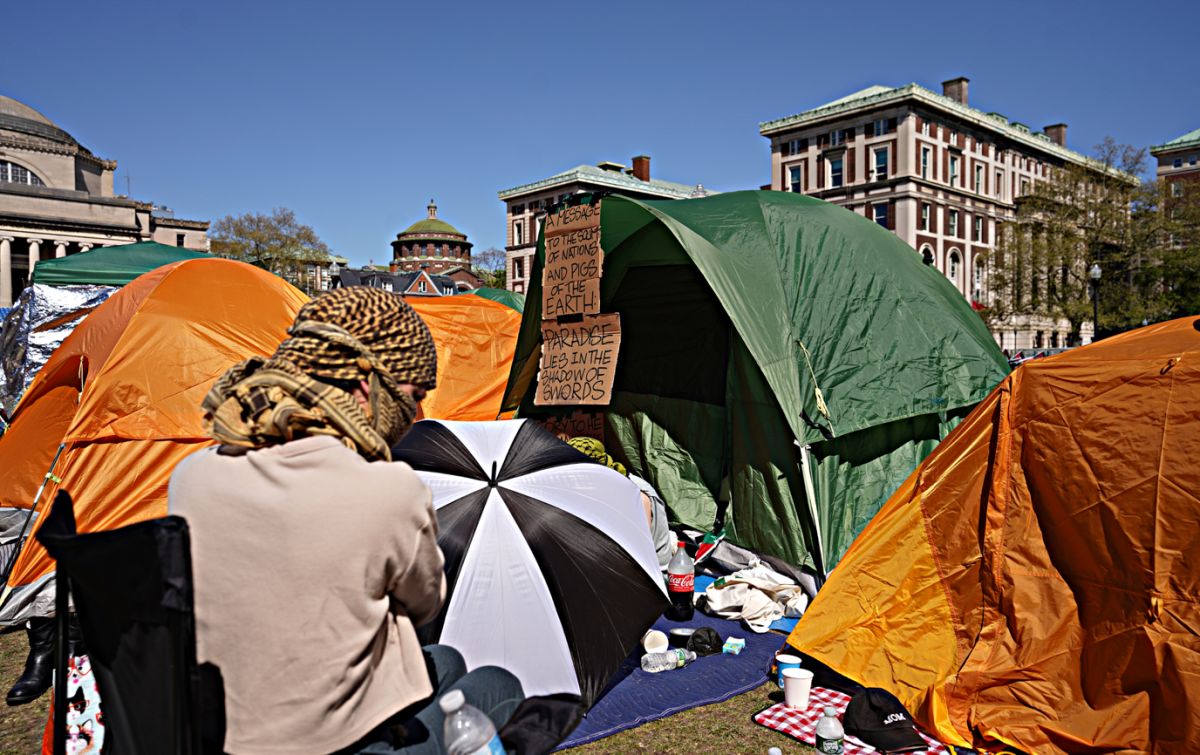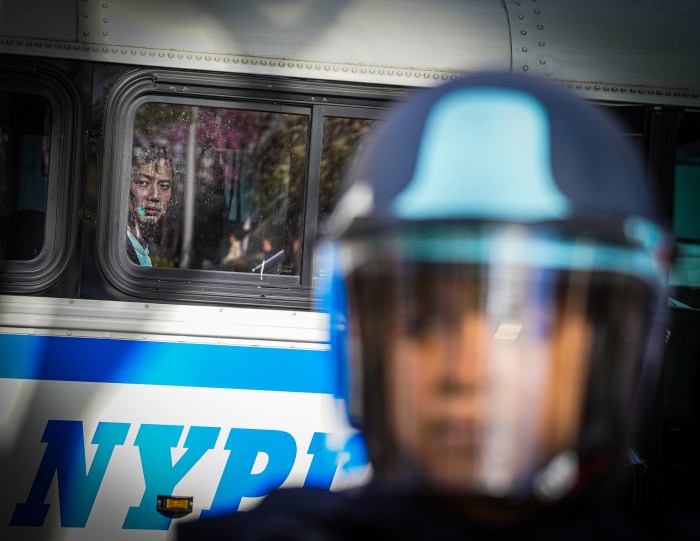BY JOSEPH AX
Former Vice President Al Gore on Tuesday accused President Donald Trump of trying to “put his knee on the neck of democracy” by undermining mail-in voting and sowing doubts, without evidence, about the integrity of the Nov. 3 election.
“He seems to have no compunctions at all about trying to rip apart the social fabric and the political equilibrium of the American people, and he’s strategically planting doubts in advance,” Gore, a Democrat, said in a conversation with Reuters Editor-in-Chief Stephen Adler and Reuters Editor-at-Large Harold Evans.
Gore, who served as vice president from 1993 to 2001 during Bill Clinton’s presidency and lost the 2000 presidential election to Republican George W. Bush, called Trump’s actions a “despicable strategy.”
Trump has made unsubstantiated claims that voting by mail, a regular feature of U.S. elections that is expected to increase this year amid the coronavirus pandemic, will cause widespread fraud, while also refusing to say he would accept the election result should he lose to Democratic challenger Joe Biden.
Gore said Americans must be prepared for vote tallies that take days to complete after Election Day, and that the candidate who appears to be winning in initial results may end up losing once all the ballots are counted.
In 2000, Gore and Bush were separated by only a few hundred votes in the key battleground state of Florida, whose electoral votes would determine the election’s outcome.
The result remained in limbo until more than a month after Election Day, when the conservative-majority U.S. Supreme Court resolved the contest in Bush’s favor, prompting Gore – who had won the nationwide popular vote but lost in the complex state-by-state Electoral College – to concede.
“It turns out there’s no intermediate step between a final Supreme Court decision and violent revolution,” Gore said, smiling, of his decision to concede. “It seemed to me that respect for the rule of law and respect for the needs of American democracy were the orders of the day.”
“You can always explore the option of dragging something out, tearing the country apart, mobilizing partisans against one another in the streets and all of that, but it was not a wise course for our country,” Gore added.
‘Not really up to him’
Gore said he believes the rule of law would hold fast this year, even if Trump does not accept the election results.
“It’s not really up to him,” Gore said, noting that Trump’s term would end on Jan. 20, 2021, if he loses, under parameters set by the U.S. Constitution.
U.S. Secret Service and other military and security forces would answer to the new president as of that date, Gore added.
Trump trails Biden in opinion polls as he seeks re-election amid a pandemic that has killed more than 177,000 Americans.
Trump’s attacks on mail-in ballots, coupled with cuts to the Postal Service that already have caused delivery delays, have raised concerns among his critics that he is deliberately seeking to depress voter turnout.
“To try to deprive people who are scared of the pandemic from voting by mail by dismantling the Postal Service – he’s attempting to put his knee on the neck of democracy,” Gore said.
U.S. Postmaster General Louis DeJoy, a Trump ally and campaign donor, told Congress he has made Postal Service changes to lower costs, not to disrupt mail-in voting.
‘Still time’
Gore, who since leaving office has become a Nobel Peace Prize-winning environmental advocate, said policymakers cannot afford to ignore global climate change even as they grapple with the pandemic.
The two crises offer similar lessons, Gore said. In both cases, scientists with “their hair on fire” have warned of potentially deadly consequences – and both have exposed the racial and economic inequities that undergird society, Gore added.
“These crises are braided together,” Gore said.
Gore said that unlike the pandemic, which forced economic shutdowns intended to curb the pathogen’s spread, climate change can be mitigated by investing in the economy’s future.
The two fastest-growing jobs in the United States are solar-energy panel installer and wind-turbine technician, Gore said, demonstrating the so-called green economy’s potential.
Gore praised Biden for putting a major investment in environmental jobs in his economic plan and for promising if elected to rejoin the 2015 Paris agreement that set emissions goals for nearly 200 nations. Trump intends to withdraw from the accord on Nov. 4, the earliest possible date.
Biden has “the strongest climate agenda that we have ever seen in a campaign in this country,” Gore said.
“There is still time,” Gore added, “to solve this crisis before it reaches its catastrophic stage. Damage has already been done, and more will be done. But we still can avoid the worst of the consequences.”


















